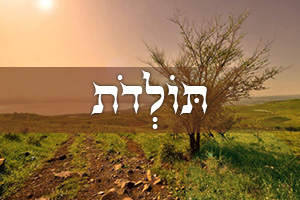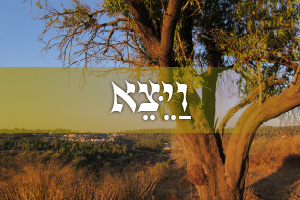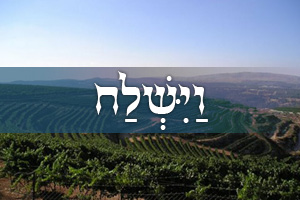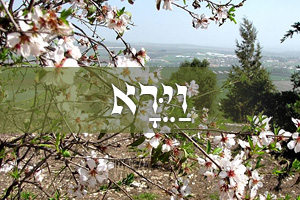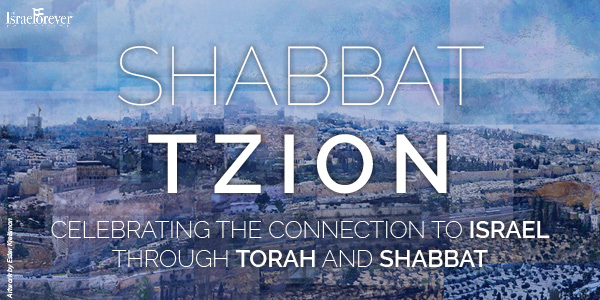Lekh Lekha: Our Eternal Connection to the Land
By Rabbi Michael Safra
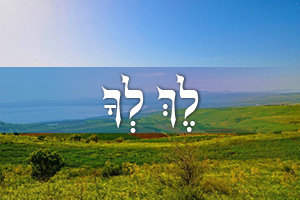
The Lord said to Abram, lech lecha, “Go forth from your native land and from your father’s house to the land that I will show you. ... I will assign this land to your offspring.”
Libi b’mizrah va-ani b’sof ma’arav, My heart is in the east, but I am in the furthest most point of the west.
Hatikvah, the hope of 2000 years is not lost: To be a free people in our land, the Land of Zion, Jerusalem.
I begin with statements – the first from this Torah portion; the second written by the Hebrew poet Judah Halevi around 1100 CE; and the third written by Naphtali Herz Imber in 1887, what eventually would become Israel’s national anthem – three statements among countless others that underscore the place of the Land of Israel within the Jewish consciousness. It is impossible to separate the Jewish people from its land.
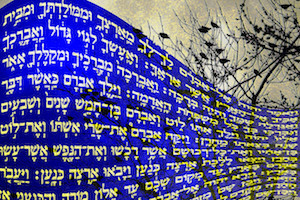
A friend was recently travelling in Israel. In the days before she was scheduled to leave, she contacted me. Members of her family were getting nervous. What were they to make of this new wave of indiscriminate attacks? In the past several weeks, at least twelve Israelis have been killed and many more wounded in seemingly indiscriminate stabbings. Every life is precious, but the tolls are nothing like the 30 who were killed in the Park Hotel in Tel Aviv in 2002 or the 25 in the Dolphinarium in Netanya in 2001, just two of the more famous attacks of the Second Intifada. It does not appear that Israel is on the brink of war as in 2014. The US State Department has issued no new warnings against travel. A former student of mine who recently made aliyah told me that she bought some pepper spray, but she is not fearful to go about her daily routine.
But there is something unsettling.
Recently, Palestinian rioters set fire to Joseph’s tomb in Nablus / Shechem. That is symbolic because Joseph’s tomb was also defaced in 2000, right at the start of the Second Intifada. The Second Intifada was stopped by the security fence, which kept would-be terrorists from infiltrating from the West Bank; but these new attacks have originated on the “safe side”, mostly from East Jerusalem.
David Horowitz, editor of the Times of Israel, remarked that Israel seems to have entered a fourth stage in its fight. The first stage was conventional warfare with neighboring Arab states, particularly the War of Independence in 1948, the Six Day War in 1967, and the surprise attack on Yom Kippur in 1973. The second stage was the First and Second Intifadas, one stopped by the Oslo process and the second by the security fence. The third stage was characterized by the rocket fire into Israeli towns and the efforts to delegitimize Israel through BDS – Boycott, Divestment, and Sanctions – efforts that continue. And now we have something new – lone perpetrators attacking individual Israelis, mostly with knives and in a completely random way in regard to time and place.
But that is not the worst of it. The worst thing is the lies ... lies aimed at incitement. There is the lie that Israelis have been planting knives at the scenes where stabbing suspects have been killed, or that Israelis are shooting Palestinian children in cold blood. In the most insidious case, President Abbas went on Palestinian television and accused Israeli soldiers of executing a thirteen year old boy, Ahmad Manasra, in cold blood. A few days later, Israel produced the evidence that that boy had not been killed. He was being treated At Hadassah Hospital in Jerusalem, and his injuries had been sustained while perpetrating an attack against Israelis. President Abbas tried to clarify: he meant that Israelis are just trying to kill Palestinian children in cold blood. These are lies ... perpetrated for the purpose of incitement.
There is the lie that Israel seeks to change the status quo on the Temple Mount. My mother, who was born and raised in Jerusalem, tells me what it was like to hear the words of Commander Motti Gur on June 7, 1967: “Har Habayit B’yadeinu, The Temple Mount is in our hands.” It was the most joyous national moment in 2000 years. But from the beginning, Israel recognized that it would be unwise to exert Israeli sovereignty over a site that was holy to Muslims. Israel annexed East Jerusalem, including the Old City and its Jewish Quarter that had been desecrated by the Jordanians, but it relinquished control of the Temple Mount to the Muslim Waqf. Jews would be allowed to visit the Temple Mount but not to pray there. Aside from occasional restrictions due to specific security concerns, as when violence by Muslim worshippers on the Temple Mount has been perpetrated against Jewish worshippers below, the status quo has not changed and Israel has no intention of changing it. But there are repeated lies ... and lies incite violence.
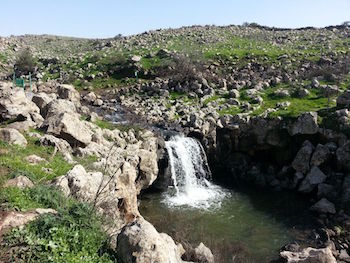
Then there are the lies that Jews don’t have a legitimate claim to Jerusalem or Israel at all, that Zionism is a colonialist movement, that Jews are not indigenous to the region. Just a couple of weeks ago, there was an article in the New York Times that exploited a legitimate debate among archaeologists over the precise location of the First and Second Temples, where exactly they stood on the mount, to suggest doubt as to whether a Jewish Temple existed at all. The paper was forced to issue a lengthy retraction. Since 2000, the Waqf has closed off the Temple Mount to any archaeological oversight by the Israel Antiquities Authority, and it has removed thousands of tons of rubble from the Mount that included archaeological remnants from the First and Second Temples. These are lies, perpetrated to delegitimize Israel and to incite violence.
When we read Parashat Lech Lecha, it is important to consider just how central is the land of Israel to our Jewish identity:
The Lord said to Abram: Raise your eyes and look out from where you are, to the north and south, to the east and west, for I give all the land that you see to you and your offspring forever. ... Up, walk about the land, through its length and its breadth, for I give it to you.” And Abram moved his tent, and came to dwell at the terebinths of Mamre, which are in Hebron; and he built an altar there to the Lord.
On that day the Lord made a covenant with Abram saying, “To your offspring I assign this land, from the river of Egypt to the great river, the river Euphrates.”
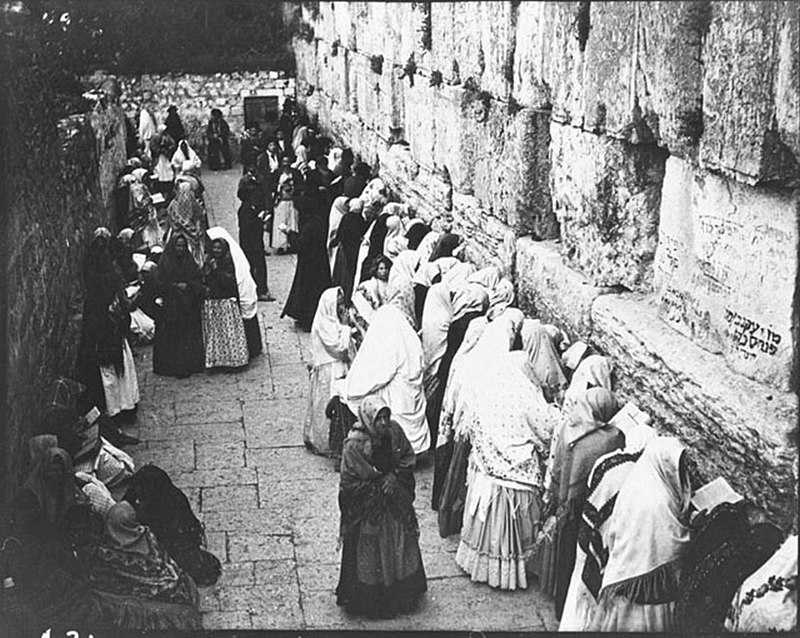
Jewish women pray at the Western Wall, 1899. Photo by Gertrude Bell
I want to be clear that we do not draw maps from the Bible. Hebron was the first city in which Abram settled and the first capital of King David; the territory of present day Iraq is included in the divine promise to Abram’s descendants; but it would be ludicrous to suggest that those facts alone should grant sovereignty to a modern nation-state. There is another people with a legitimate national destiny and, as a peace loving people, we must recognize and accept that the territory will have to be divided through the course of negotiation.
But I quote the Bible today to underscore the point that our claim is legitimate as well. From the beginning of our history, it is impossible to define the Jewish people without the land. From the very beginning, there has never been a time when the Land of Israel was bereft of a community of Jews. Never! When the community was exiled by the Babylonians, there was still a Jewish community in Eretz Yisrael. After the exile by the Romans, there was still a community in Eretz Yisrael. In the Middle Ages, throughout the Ottoman Empire, in the modern period, there have always been Jewish communities in the Land of Israel.
And for the majority of Jews who were not able to live in the land during a 2000 year period of exile, Israel was at the forefront of their consciousness. We face Jerusalem while reciting a liturgy in which the references to restoration and return are too numerous to count. We study a Bible that mentions Jerusalem 660 times and a Talmud, in which our Rabbis taught:
One should always live in Eretz Israel even in a city where the majority are non-Jews. ... Whoever lives in Eretz Israel is as one who has God, while whoever lives outside Eretz Israel is as one who does not have God.
I pray for peace. I pray for an end to violence. I recognize that the pursuit of peace requires risks and a willingness to relinquish territory. But I can never concede the legitimacy of my people’s connection to our land.
Which began neither in 1948 with a Declaration of Independence, nor in 1945 with the near annihilation of our people;
Neither with Herzl or BILU or Hovevei Tziyon near the turn of the century, nor with Benjamin of Tudela or the mystics of Tzfat in the Middle Ages;
Not with Herod or the Maccabees or Ezra or Solomon or David; the origin of our claim goes back to the origin of God’s promise:
I will maintain My covenant between Me and you, and your offspring to come, as an everlasting covenant throughout the ages, to be God to you and to Your offspring to come, and to assign the land you sojourn in to you and your offspring to come, all the land of Canaan as an everlasting holding. And I will be their God.
Covenant. God. Israel. You can’t have one without the other.
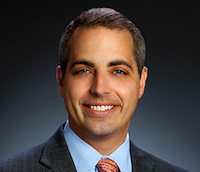
Rabbi Michael Safra is from B’nai Israel Congregation and Talmud Torah in Rockville, Maryland.

